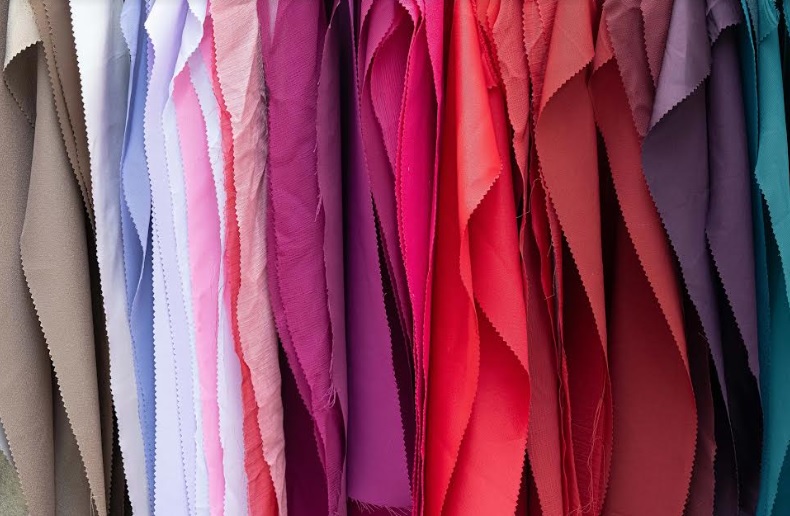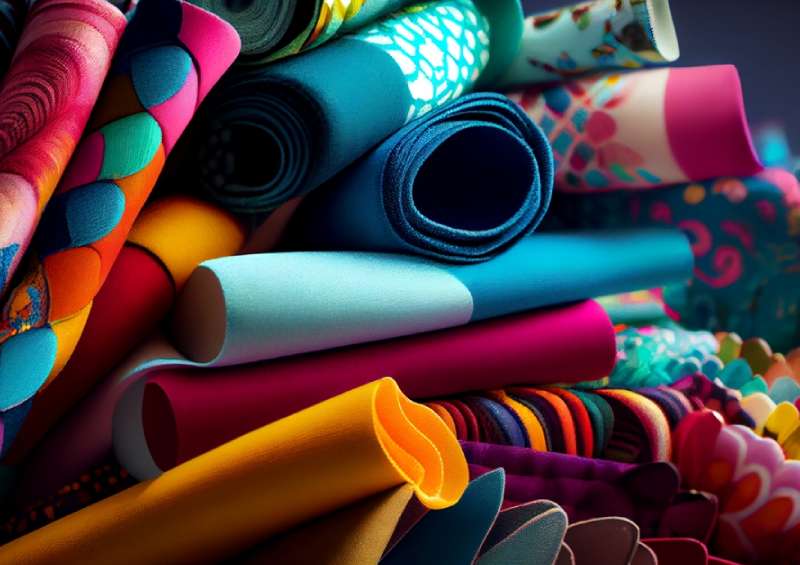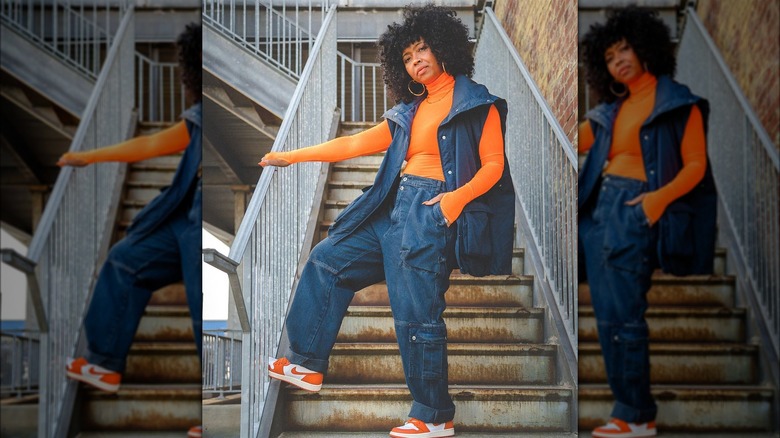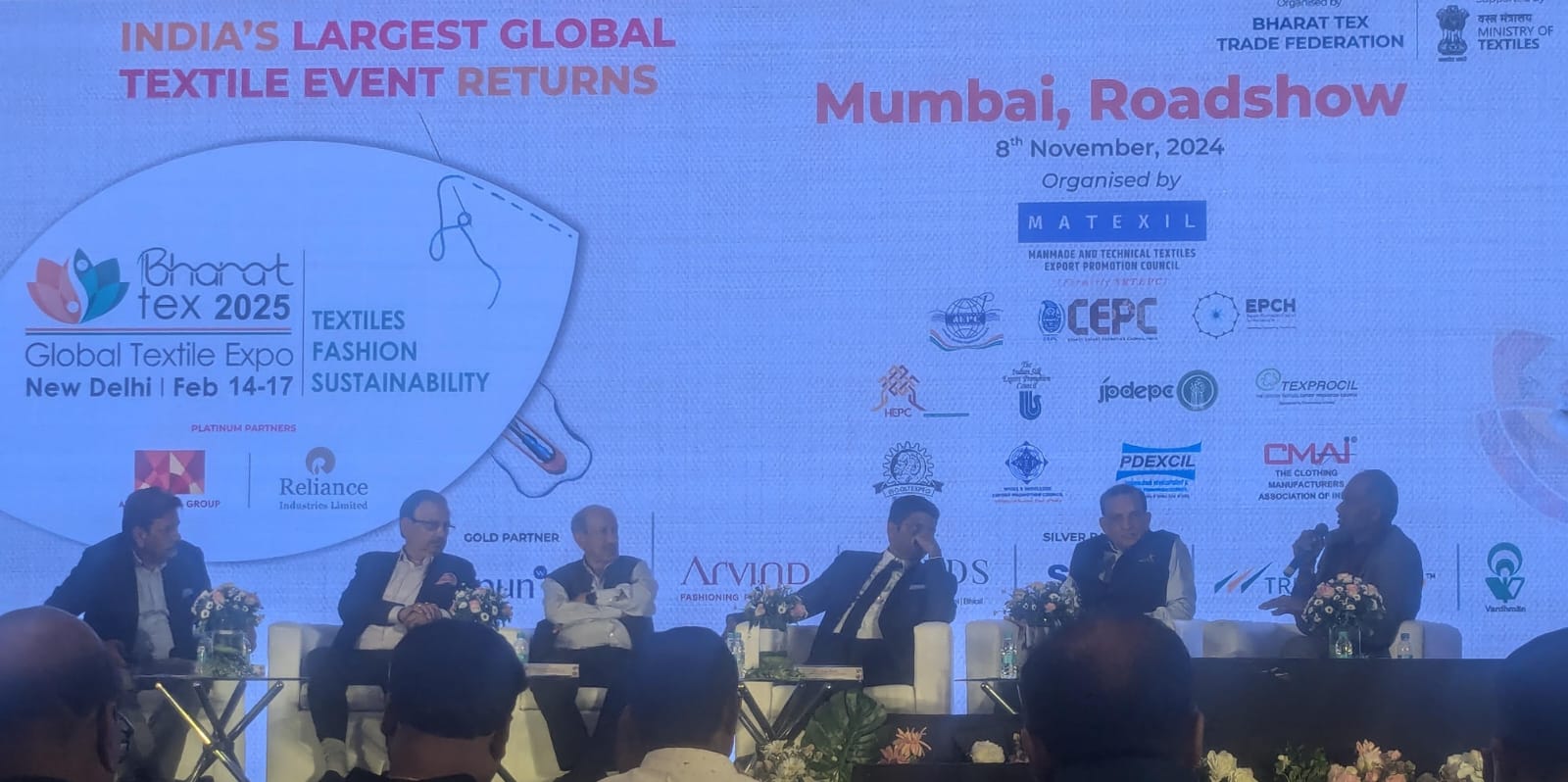FW
Jeanologia is celebrating 25 years of its pioneering laser technology at Kingpins Amsterdam with a special capsule collection that blends traditional denim with modern innovations. Coinciding with Kingpins’ 10th anniversary in Amsterdam and 20th globally, the event highlights laser technology’s transformative impact through a visual installation that showcases a quarter-century of progress.
Since the launch of its first laser in 1999, Jeanologia has revolutionized the textile industry by eliminating harmful practices like sandblasting. Today, its laser technology is used in 50 per cent of global denim production, enhancing sustainability, quality, and efficiency for manufacturers and fashion brands alike.
The capsule collection presented at the event showcases how Jeanologia has seamlessly integrated laser technology into denim’s heritage. The garments feature iconic vintage effects such as stone washing, worn-out looks, and rips, achieved through advanced tools like the ‘Light Ripper’ and ‘Light Scrapper.’ This ‘old new designs’ collection merges the past and future of denim, symbolizing continuous innovation and sustainability.
Jeanologia’s anniversary celebration also includes a digital capsule collection with 25 designs, allowing visitors to experience the creative potential of laser technology through eDesigner software. Attendees can create and take home digital garments to be produced sustainably anywhere in the world.
Fernando Cardona, Jeanologia's Head of Brainbox, emphasized the role of laser technology in fostering sustainable production and creativity. The company’s technological innovations, such as G2 ozone, e-flow, and ColorBox, continue to reshape the textile industry by reducing environmental impact, water, and chemical usage.
Jeanologia’s 25year journey reflects its commitment to a greener future, honoring the global ‘denim tribe’ of brands and manufacturers who have adopted these technologies for a more sustainable fashion industry.

Texworld Apparel Sourcing Paris will return to the Paris-Le-Bourget exhibition centre from February 10 to 12, 2025. This event promises to be a significant gathering for international buyers and suppliers as they seek to design and develop Spring-Summer 2026 fashion collections. With high booking levels already indicating strong interest, Messe Frankfurt France anticipates a bustling event.
Venue transformation and layout enhancements
Halls 3 and 4 of the Paris-Le-Bourget exhibition centre will host the event, showcasing a completely renovated Hall 3, designed for the recent Olympic Games. The new layout will enhance the coherence of product offerings, allowing for improved synergies between materials and finished goods. Hall 4 will focus on a women’s wardrobe, while Hall 3 will feature a dedicated space for outdoor, sportswear, and casual wear. Additionally, all essential services, including a trends forum, dining options, and the Agora for conferences and discussions, will be consolidated in Hall 2. This new organization aims to streamline the sourcing process for buyers, providing them with comprehensive solutions.
This edition underscores the importance of European markets in the fashion sector, spanning ready-to-wear to luxury segments. The event will host exhibitors from leading sourcing nations such as China, Turkiye (with support from the Istanbul Chamber of Commerce), India, Korea, Indonesia, Pakistan, Thailand, and Bangladesh. Despite challenging political climates, these countries remain steadfast in their participation. Notably, Texworld will continue to highlight yarn sourcing through the Yarn Expo pavilion, showcasing the expertise of prominent spinning companies and reinforcing the value of the upstream sector.
Meeting evolving market demands
Messe Frankfurt France is tailoring the trade show experience to meet the changing demands of the fashion and apparel markets. Julien Schmoll, the Marketing and Communications Director, notes that buyers, brand managers, and designers are increasingly seeking partners who can address sustainable development objectives. The event will showcase suppliers capable of offering high-quality, creative products in various quantities at competitive prices, particularly important for mid-range items.
The Texpertise Econogy initiative will play a pivotal role in highlighting sustainability within the textile sector. The Econogy Finder, available online and via a mobile app, will help buyers locate suppliers of sustainably produced textiles. The Econogy Talks will facilitate discussions around sustainability, featuring several round tables in the Agora located in Hall 2. Additionally, Econogy Tours will return on February 10 and 11, led by specialists to explore sustainable offerings.
Future editions and calendar changes
Looking ahead, Texworld Apparel Sourcing Paris has shifted the dates for its Autumn-Winter 2025-2026 edition to September 15-17, 2025. This rescheduling aligns the event with creative cycles, ensuring sourcing and orders are timed closely with collection development. Alongside Texworld, key sectors such as Avantex and Leather world will also feature in this edition, further enriching the event's offerings.
Texworld Apparel Sourcing Paris promises to be a landmark event for the fashion industry, focusing on sustainable practices and innovative sourcing solutions. With enhanced venue layouts and a strong lineup of exhibitors, this event is set to redefine how buyers connect with suppliers in the evolving landscape of fashion and textiles. The combination of traditional sourcing and a commitment to sustainability underscores the industry's shift towards responsible production, making Texworld a must-attend event for anyone in the fashion business.
Archroma, a global leader in sustainable specialty chemicals, is set to showcase its latest innovations at Performance Days 2024 in Munich, focused on functional fabrics. The event, running from October 23-24, will highlight Archroma’s commitment to combining functionality, aesthetics, and sustainability in the sportswear, athleisure, and workwear sectors.
Lee Howarth, Director of Strategic Marketing & Brand Engagement at Archroma, emphasized the importance of adopting cleaner chemistries that enhance product performance, factory productivity, and environmental impact. The company will introduce its ‘Planet Conscious+’ concept, a six-dimensional roadmap supporting brands and mills in their sustainability journeys.
Featured innovations include Archroma’s Eriofast reactive dyes for polyamide blends, Terasil W/WW disperse dyes for polyester, and Avitera SE dyes for cellulosic fibers. The patented Earth Colors technology, transforming food and agricultural waste into high-performance dyes, will also be on display.
Additionally, Archroma will present its fluorine-free water repellents, odor-neutralizing solutions, and the coldblack finishing technology for UV protection and cooling, alongside Power Cotton for increased cotton durability.
Performance Days 2024 expects around 3,000 visitors and over 530 global suppliers, with Archroma at Booth T16 in Hall A2, Messe Munchen.
The Hong Kong Polytechnic University School of Design (PolyU Design) is hosting an exhibition, ‘Time-capsuled Histories: Six Decades of PolyU Design,’ until 11 November 2024, marking its 60th anniversary. The exhibition highlights PolyU Design’s contribution to design education in Hong Kong and globally.
Divided into five sections, the exhibition covers the School’s leadership evolution, curriculum, research development, alumni works, and publications. Notable works from graduates between 1973 and 2023 are featured, including projects ranging from wet market-inspired art to eco-friendly product designs.
Commissioned by Dean Kun-Pyo Lee, the exhibition was curated by a research team that spent over a year gathering artefacts from alumni and staff. A comprehensive timeline maps PolyU Design’s growth from its origins in Hong Kong Technical College to its present standing, reflecting key changes in industry trends and technology.
The exhibition highlights the role of design education in Hong Kong’s social and economic development. A key event is the ‘Time-Capsuling: The Untold Journeys of PolyU Design’ sharing session, led by former Associate Dean SIU King Chung, alongside alumni.
Open to the public, this exhibition celebrates PolyU Design's journey and its lasting influence on Hong Kong’s creative landscape.
Spinnova has partnered with Helsinki-based brand ASK Scandinavia to release a limited-edition, naturally dyed work tote bag in 2025. The bag, made from fabric containing 30 per cent wood-based Spinnova fibres and 70 per cent cotton, is dyed using a natural dye developed by Natural Indigo Finland from Paulig’s coffee waste. This marks the first time Spinnova fibres have been used with natural dyes for a commercially available product.
The bag blends ASK Scandinavia’s minimalist Nordic design with durability, ensuring practicality for everyday use. Each tote showcases the sustainable innovations of Spinnova’s low-impact fibres, ASK Scandinavia’s enduring design approach, and Natural Indigo Finland’s eco-friendly dyeing methods. Spinnova’s fibres reduce carbon dioxide emissions by 74 per cent and water usage by 98 per cent compared to conventional cotton, while the coffee waste-based dye is non-toxic and efficient.
Anette Cantagallo, Director of Design and Sustainability at ASK Scandinavia, expressed excitement about integrating next-gen materials for a sustainable fashion future. Shahriare Mahmood, Spinnova’s Chief Product and Sustainability Officer, highlighted the collaboration as an opportunity to explore Spinnova’s fibre versatility in new product categories.
Pre-orders for the tote bag will begin in late 2024, with availability in ASK Scandinavia’s online store in 2025. The design will be unveiled at the product’s official launch.
The EU has called on e-commerce platform Temu to provide detailed information regarding its efforts to prevent the sale of illegal products. Temu, which gained popularity in Europe after entering the market in 2023, currently has around 75 million monthly active users in the region.
The European Commission has asked Temu to clarify measures taken under the Digital Services Act (DSA) to stop traders from selling illegal goods. The commission also wants data on how Temu protects consumers and public health, alongside details of its personalized content systems and data protection practices.
Temu has until October 21 to respond, and failure to comply could lead to further investigation and possible fines.
This request is the second since Temu was listed under the EU's stricter regulations for major digital platforms in May. European consumer groups previously accused Temu of using manipulative techniques to boost user spending.
The US apparel imports market showed mixed results in Aug’24 with imports rising in volume but declining in value.
As per data from OTEXA, growing by 1.34 per cent in volume, US apparel imports reached 2,502.29 million SME (Square Meter Equivalent) in Aug’ 23, suggesting steady or increasing demand among US consumers.
However, the value of these imports declined by 0.86 per cent Y-o-Y to $7.67 billion, indicating a divergence between the volume and value of imports, reflecting changing market conditions.
On a Month-on-Month basis, US apparel imports declined by 2.68 per cent in value from July 2024, indicating either seasonal adjustments, more cautious consumer spending, or retailers managing inventory levels prudently.
In Aug’24, the average Unit Value Realisation (UVR) dropped by 4.73 per cent to $3.06 from $3.13 in July’24. This suggests a trend toward lower-priced goods or potential price negotiations between buyers and suppliers, contributing to the lower overall value despite higher import volumes.
China remained the largest apparel exporter to the US, accounting for 25.20 per cent of the total value share in Aug ‘24. Vietnam followed with 19.16 per cent, while Bangladesh (7.96 per cent), Indonesia (5.22 per cent), and India (4.76 per cent) emerged as the top five apparel exporters to the US.
The Q3, FY25 revenues of Italian luxury player Salvatore Ferragamo SpA declined by 9.6 per cent Y-o-Y to €221 million or about $240 million, The company’s year-to-date revenue declined by 11.9 per centY-o-Y to €744 million.
So far this year, Ferragamo reported revenue declines in every quarter. The company net profit in H1, FY24 by 73.2 per cent.In Q3, sales from the company’s wholesale segment contracted by 14.1 per centY-o-Y as demand weakened, particularly in the US market.
The company’s DTC net sales during the third quarter contracted by 7.5 per cent Y-o-Y despite a positive performance in Europe, Japan and Latin America.
Net sales in Asia Pacific declined by 21 per centY-o-Y as the region faced a low consumer confidence. Marco Gobbetti, General Manager and CEO says, the Asia Pacific region represented the biggest impact on the company’s overall sales performance.
Ferragamo’s net sales in the combined region of Central and South America fell by 8.2 per cent while sales in North America lowered by 7.4 per cent. The company’s net sales in the EMEA region net sales remained flat at 0.6 per cent.
However, driven by a double digit growth in DTC in the region, Ferragomo’s sales in Japan grew by 3.4 per cent.
Mirroring a larger trend in luxury fashion Ferragamo’s financial declines accompanied similar results reported by other brands including Kering, Burberry and Lanvin. However, brands like Prada and Hermes reported revenue rises during the quarter.

India's textile and apparel industry continues its robust growth trajectory, with exports witnessing a significant upswing in September 2024. According to recent data released by the Confederation of Indian Textile Industry (CITI), textile exports for September 2024 reached $1,813.27 million, a 9.56% increase compared to the same period last year. Apparel exports demonstrated even more impressive growth, surging by 17.30% to reach $1,110.11 million.
This positive trend extends to the cumulative export figures for the first half of the fiscal year 2024 (April-September). Overall, textiles and apparel exports for this period have grown by 5.13% compared to the previous year. Notably, apparel exports have recorded a strong 8.51% growth, highlighting the increasing global demand for Indian apparel products.
CITI Chairman, Rakesh Mehra, expressed his optimism about the sector's performance, stating, "India's textile and apparel exports continue to show strong momentum, with a 12.38% growth in September 2024 over the previous year. Apparel exports, in particular, saw an impressive rise of 17.30%, reflecting the global demand for quality Indian products. The steady growth of 5.13% in cumulative exports for the first half of FY24 reinforces our sector's resilience and potential in driving economic progress."
Apparel exports outshine despite global slowdown
The Apparel Export Promotion Council (AEPC) echoed CITI's positive outlook. AEPC Chairman, Sudhir Sekhri, emphasized the sector's resilience in the face of global economic challenges. "India's RMG exports have outshined despite the global slowdown and continued inflationary pressure," Sekhri stated. "Even major exporting countries witnessed a slowdown in RMG export growth, and the WTO also lowered its growth projection for world merchandise trade."
Sekhri attributed India's success to its unique advantages, including low import intensity, a complete textile ecosystem, and a young and abundant workforce. He further highlighted the sector's potential for job creation, particularly for unskilled and underprivileged workers.
Comprehensive Data Table: Exports(ValuesinUS$Mn)
|
Particulars |
Sep-23 |
Sep-24 |
%Change |
Apr-Sep'23 |
Apr-Sep'24 |
%Change |
|
CottonYarn/Fabs./made-ups, HandloomProductsetc. |
1,017.82 |
1,053.19 |
3.48% |
5,899.76 |
5,946.53 |
0.79% |
|
Man-madeYarn/Fabs./made- ups etc. |
372.76 |
415.28 |
11.41% |
2,336.25 |
2,405.06 |
2.95% |
|
JuteMfg.includingFloor Covering |
28.89 |
33.64 |
16.44% |
185.14 |
179.39 |
-3.11% |
|
Carpet |
113.79 |
130.78 |
14.93% |
669.35 |
745.74 |
11.41% |
|
Handicraftsexcl.handmade carpet |
121.8 |
180.38 |
48.10% |
791.99 |
878.76 |
10.96% |
|
Textiles |
1,655.06 |
1,813.27 |
9.56% |
9,882.49 |
10,155.48 |
2.76% |
|
Apparel |
946.35 |
1110.11 |
17.30% |
6916.44 |
7505.14 |
8.51% |
|
TextileandApparel |
2,601.41 |
2,923.38 |
12.38% |
16,798.93 |
17,660.62 |
5.13% |
|
AllCommodities |
34,407.98 |
34,582.15 |
0.51% |
2,11,079.42 |
2,13,222.29 |
1.02% |
|
%ofT&AinTotalExports |
7.56% |
8.45% |
|
7.96% |
8.28% |
|
Source:PIB
These figures paint a picture of a thriving and optimistic textile and apparel sector in India. The sector's continued growth is poised to contribute significantly to India's economic development.
Apparel brand Guess has partnered with textile recycling platform SuperCircle to launch a new online clothing recycling initiative titled, ‘Guess Again.’
Launched with an aim toprovide brands, retailers and customers a platform to exchange used clothing items and recycle textiles, the initiative involves customers sending used garments of any brand to SuperCircle for recycling and receiving a Guess credit amount/score for their future Guess purchases.
Chloe Marie Songer, CEO and Co-founder, SuperCircle, says, demand for easily accessible, worthwhile recycling programs is rising with 92 million tons of textile waste produced annually and 85 per cent of textiles ending up in landfills or burned.
The brand has also adopted an in-store customer recycling program policy specifically in the US and Canada in collaboration with Homeboy Threads, an enterprise offering reuse and recycling services for the apparel and textile industry.












